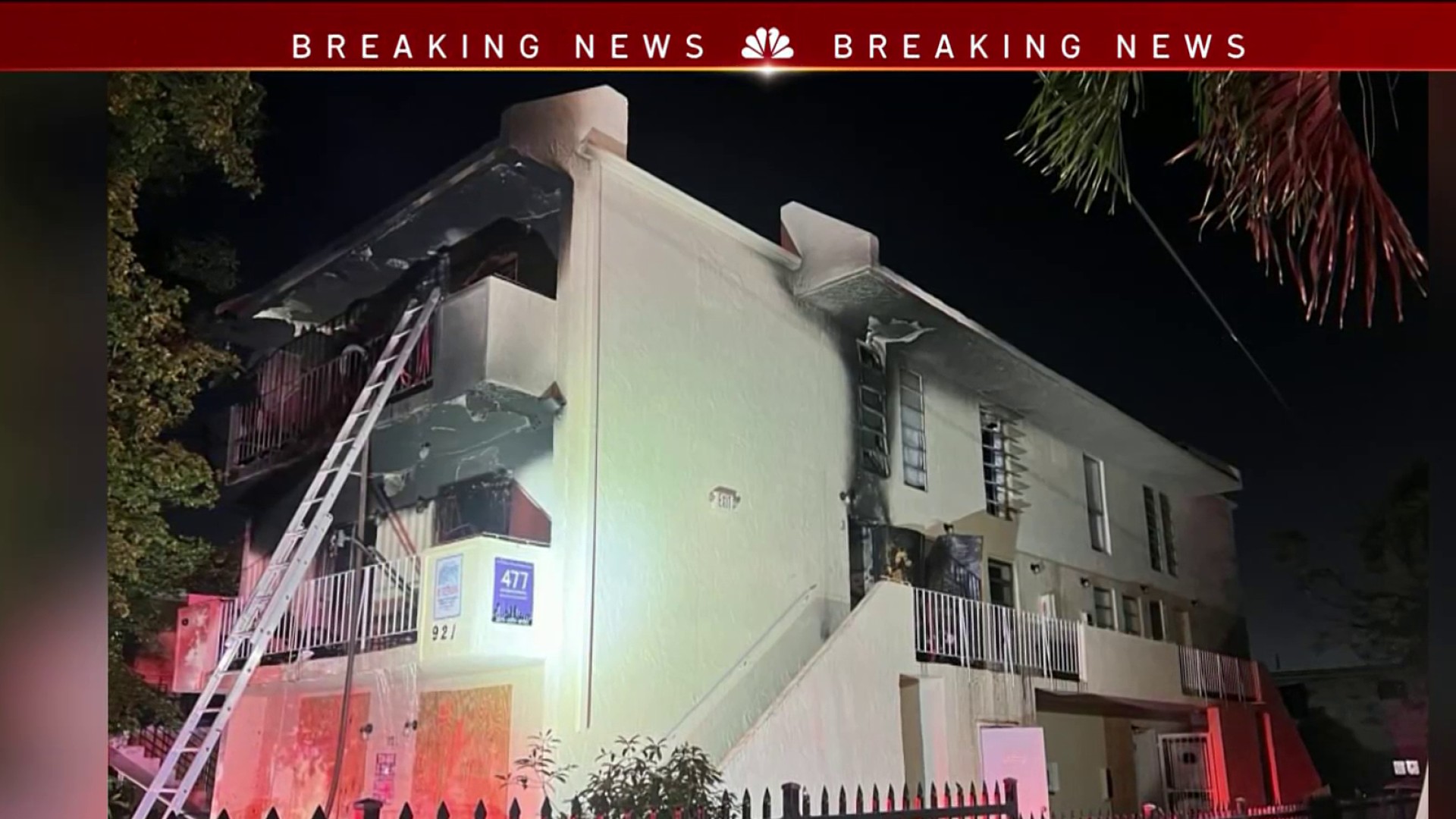It's 7:45 a.m., and the bus isn't here yet. Second-grader Desi Alvarez fidgets in his wheelchair and smiles up at his adopted mom.
"Where's your bus?" Lisa Alvarez asks, joking and smiling back.
Desi can't answer, because he has cerebral palsy. Mom tickles and kisses him. He can't stop giggling.
"We took him right out of Miami Children's Hospital," she remembers.
Desi was seven months old and weighed seven pounds. Born on Valentine's Day in 2007, he would become the second adopted child to capture the hearts of Lisa and her husband Jorge.
"He has a heart of gold," Lisa says proudly.
Suddenly, a horn honks outside. Jorge rolls his 7-year-old son to the edge of the driveway and helps load him onto a specially outfitted yellow bus. There are more kisses from Mom before Desi's chair rises a few feet to the open door.
Local
"See you after school," Lisa shouts.
A moment later, a slender 13-year-old appears in the doorway — their first adopted daughter. Tasha is a shy eighth-grader with perfect attendance at Somerset Academy. A swift kiss, and she hops in the car with Dad.
"Have a good day!" Mom calls.
Now it's time to tend to the littlest ones. A 15-month-old girl gobbles strawberries while staring up at Lisa with big brown eyes. A few steps away, an eight-month-old girl sleeps soundly on a blanket. Born prematurely, she can't breathe on her own. Tubes connect her tiny nostrils to an oxygen machine 24 hours a day.
Both girls are foster children. Fortunately for them, Lisa and Jorge are both full-time medical foster parents. They've opened their home to more than a hundred children since 1999, many of them seriously ill.
But most kids eligible for foster care aren't as lucky as the two in Lisa's living room. There aren't enough foster homes in Miami-Dade and Broward to put a roof over half the children who need them.
"We've had fewer and fewer foster homes across the state," laments Dr. Oren Wunderman, executive director of the Family Resource Center in Miami. His agency links children with foster parents.
Miami-Dade has nearly 300 foster homes, Broward 471. Children who don't go into foster care must be placed elsewhere: in a group home, shelter, hospital or with a relative or even a non-relative.
Lisa insists more parents should considering fostering. "Everybody needs to try this just once," she says.
She and her husband live off savings and a modest foster stipend. They met at a restaurant and married in 1993, but Lisa was unable to conceive.
"I think God had other plans for me. I think this was my plan in life, that he wanted me to take care of children," she says.
Her husband spent time in four foster homes himself. At age 6 1/2, he travelled to Miami from Cuba as part of the Pedro Pan program.
"Out of the four [foster homes], three of them were not very good," he remembers. "I realized from personal experience the need for a good quality foster home."
But Jorge never expected to care for 101 children.
"It just kept snowballing," he said. "This is my wife's passion, you know. I can't say no to somebody who's doing such a good thing."
"I like fixing things. I like taking things that are broken, things that need mended," Lisa admits.
Her husband's advice: "Don't go crazy, don't try to do a hundred kids. Just do one."
For Mother's Day, a restaurant date is out of the question, so Jorge plans to make Lisa one of her favorites: crab cakes.
To learn how you can become a foster parent, or support a foster parent, go to frcflorida.org.



